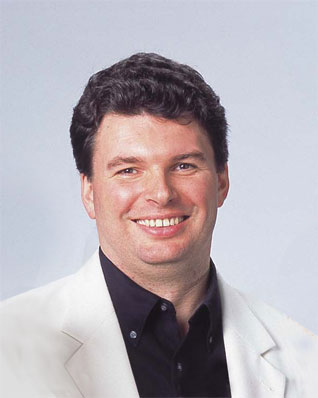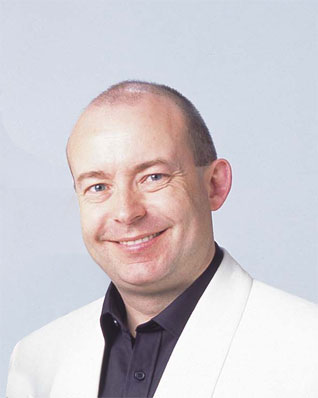TRAVELLING BY TUBA
Chris Cranham— Tuba
Chris Cranham attended Peter Symonds College in Winchester to study on the Hampshire Specialist Music Course with John Fletcher. He entered the Royal Northern College of Music in 1987 to study under Stuart Roebuck, former principal tuba with the Hallé Orchestra.
Chris won many competitions and scholarships and was for two years a member the World Youth Orchestra, touring South America, Canada and Europe. He gained the Professional Performers Diploma with Distinction in 1990 and gained his Graduate Diploma the following year. It was also in that year that he moved to Germany to play in one of Europe’s leading brass quintets— Rekkenze Brass. Chris made several CD productions with the quintet and toured extensively throughout Europe, America and the Far East. He also performed for television and radio and became principal tuba with the Hof Symphony Orchestra in Bavaria.
Since his return, Chris has been working both as a solo and orchestral tuba player as well as performing regularly with Travelling by Tuba.
Stewart Death— Piano
Stewart Death began his formal musical training at City University in 1984 studying piano with Alan Schiller at the Guildhall School of Music and Drama. After graduating with a BSc(Hons) in music in 1987 he entered the Royal Northern College of Music to study piano accompaniment with David Lloyd gaining the prestigious Professional Performers Diploma.
Since leaving college he has toured throughout Europe with the Concordia Opera Trio and has been heard as an accompanist on Classic FM, BBC Radio and Independent Television.
He has worked as an accompanist for Welsh National Opera and has recorded several compact discs with many different artistes including Stephen Mead, Roger Webster, Simone Rebello and Andrew Berryman.
He has recently returned from a tour of Poland and has appeared at many top venues including the Purcell Room, St. David’s Hall, Royal Festival Hall and Barbican Centre.

Chris Cranham - Tuba

Stewart Death - Piano
PROGRAMME
Although the tuba is of course prominent in all
their concerts it must be emphasised that this is not just a tuba
recital. Playing an innumerable array of wind and brass instruments,
Travelling by Tuba present a concert spanning over fifteen thousand
years of music.
Beginning with the simplicity of the first
natural instruments – the conch shell from the Pacific, the Viking
horn from Scandinavia and the Australian didjeridu— the history of
the tuba is traced. These mono-tonal instruments led directly to the
development of the first wind instruments.
Journeying through the courts of Europe you
will hear typical music of the time played on early instruments
including the cornett and the sackbutt. As the concert moves through
the centuries the instruments become more complicated, unusual and
original.
The serpent, first used in French church music
during the fifteenth century, was the first proper bass wind
instrument, remaining popular for over two hundred years. Much
favoured during the first half of the nineteenth century was the
bassoon-shaped ophicleide made of brass with holes covered by keys.
It was used as a regular member of the symphony orchestra by
composers such as Berlioz and Mendelssohn.
The dawn of the industrial age saw the
invention of the valve which gave rise to a new family of
instruments including the tuba.